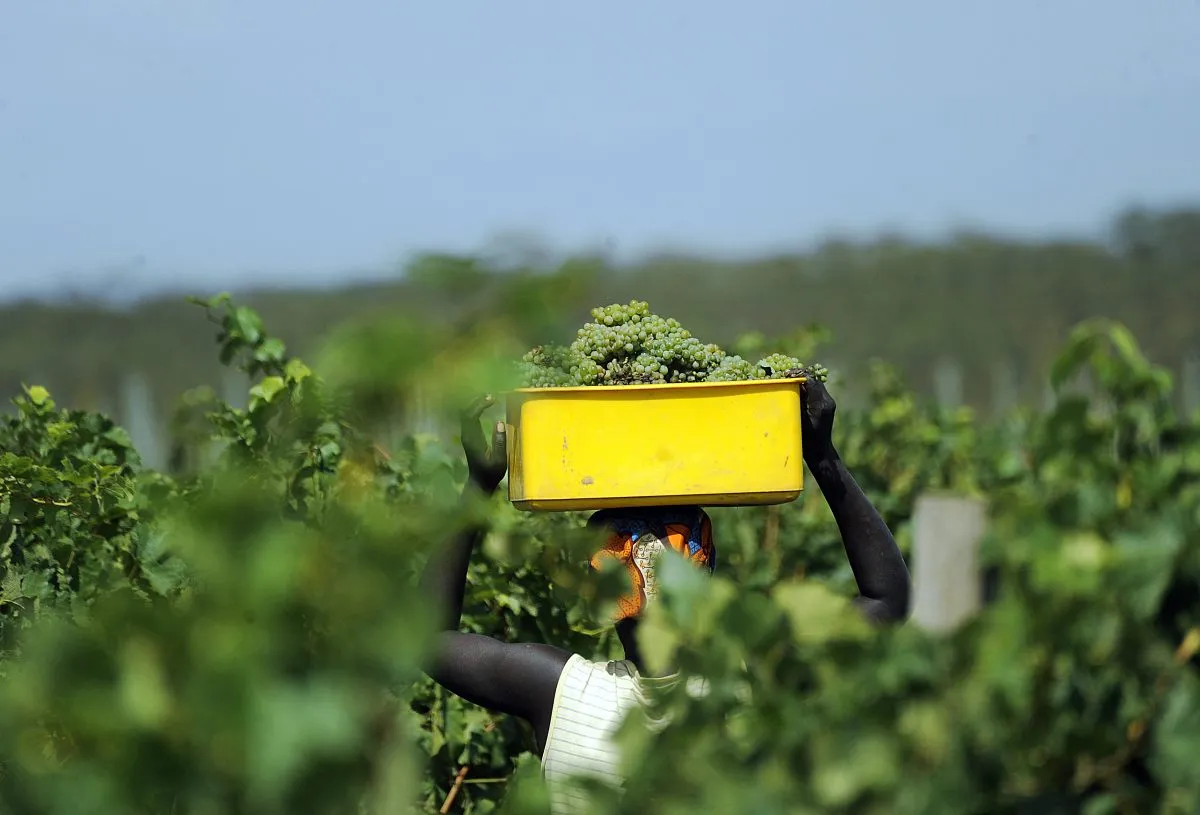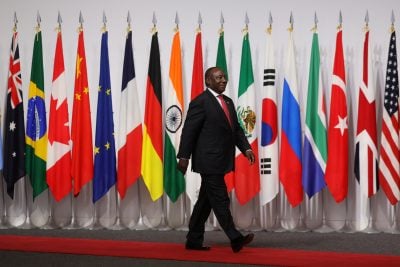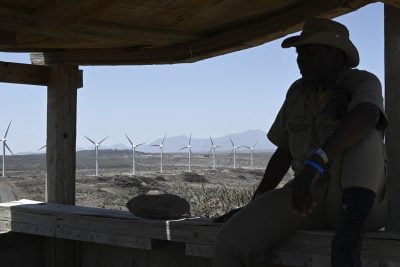If you think about wine producing regions of the African continent, Stellenbosch and Franschhoek, famous for their crisp Sauvignon Blancs and Chardonnays, may be first to spring to mind. South Africa remains the dominant force in the continent’s wine scene; but it is facing growing competition from upstart producers in unlikely corners of the continent.
From Morocco’s arid climate to Kenya’s green hills, some lesser-known African wine producing countries are quietly making names for themselves, offering vintages as diverse as the cultures and landscapes that produce them.
Morocco draws on ancient pedigree
In the continent’s north, Morocco’s wine-making culture is influenced by its Mediterranean climate. The region of Meknès, 120 kilometres from the capital Rabat, is the country’s wine capital. It boasts luscious and fertile land, mild temperatures and many hours of sunshine. Morocco’s history of winemaking dates back to the Phoenicians and the Romans, who cultivated vineyards near the ancient city of Volubilis, which was 30 km north of Meknès. Today it produces around 30m bottles of wine per year and is the continent’s second largest exporter of wines, after South Africa.
Villa Volubilia, named after the ruined Roman city, is an artisanal winery. In 2002 two wine enthusiasts and hoteliers from Bordeaux bought the vineyard, believing that Morocco’s high-altitude vineyards and the area’s clay and chalk soil could yield unique results. They have since planted 115 hectares of vines. The estate is still family-run and in 2022, its Fleur de Volubilia Rouge wine won a medal in the Decanter World Wine awards, against strong competition from established Old World and New World wines. Its Epicura Chardonnay is aged in barrels for several months until its distinct flavours of vanilla, flowers and pear reach full maturity. Reviewing a 2014 vintage, the renowned French wine guide Gilbert & Gaillard called Epicura “a well-made Chardonnay” that is “supple, round, velvety and generous with white fruit aromas”.
The largest wine producer in Morocco is Les Celliers de Meknès, founded by businessman Brahim Zniber in the 1960s. He planted many international grape varieties, including Chardonnay and Cabernet Sauvignon, and pioneered modern Moroccan wine production at a time when the industry was facing decline due to reduced European demand for North African wines. His was the first winery in Morocco to age its wine in oak barrels, and it registered the country’s first appellation d’origine contrôlée (AOC) wine, Les Coteaux de L’Atlas. Today Morocco has 14 AOC wines, officially recognising regional qualities and production standards.
Kenya’s volcanic soils yield rich rewards
In Africa’s east, another country is slowly but surely making its presence known on the world wine stage. Kenya is better known for coffee than wine, but with a favourable climate, rich, volcanic soil and recent advances in agricultural technology, regions including Naivasha, the Yatta Plateau and the Great Rift Valley escarpments have emerged as key wineproducing areas.
And in a typically maledominated industry, one woman is blazing a trail in Kenya’s wine scene. Wanjiru Mureithi was born and raised in Kenya, before moving to South Africa to study for a diploma in wine business management. In 2014 she founded Winenjiru, a wine business management company based in Kenya that aims to elevate wine culture in East Africa, from production to education, to lifestyle. She is also the chairperson of the Sommelier Association of Kenya. As she puts it: “I create experiences with wine. Wine is about having an experience, and experiences become a lifestyle.”
Initially, Mureithi’s goal was to distribute wine in Kenya, but she soon expanded to focus on education and events. She advises companies looking to enter the wine business, trains staff in restaurants and wine shops to improve customer service and wine knowledge, and organises wine-focused events, from small meetings to large-scale trade shows, to educate sellers and consumers. She is the first certified Wines and Spirit Education Trust educator in Kenya, and has taught structured courses that explore grape varieties, wine regions and storage methods. For Mureithi, wine is more than just a drink. It is, she believes, “a sensory encounter… a connector [that] brings people together. And every wine has a story.”
Kenya Wine Agencies established the first Yatta vineyard in the country in 1982. The Yatta Plateau has a Mediterranean climate, allowing the vineyard to produces wines including Chaney Blanc and Ruby Cabernet. Leleshwa Wines, based in Naivasha, produces up to 150,000 bottles each year and offers varieties including Sauvignon Blanc and Merlot-Shiraz blends.
Expertise grows as wine culture beds in
In the 2024 World Wine Tasting Championship in France (often referred to as the Wine Olympics), the all-female Kenyan team outperformed traditional wine powerhouses in the art of blind-tasting unlabelled wines, guessing them correctly. They finished 30th out of 40 teams, two spots behind France. They prepared through rigorous training sessions at The Wine Shop in Nairobi, and tasted hundreds of wines to perfect their skills. Mureithi believes that “we are building a wine culture in Kenya.”
The income diversification opportunities that wine offers are being realised. Several game reserves across the country offer wine safaris, albeit with South African wines which, as Mureithi notes, make up 50% of imported wines in Kenya. This could change as Kenya continues to position itself as a solid rival to Africa’s other wine producing nations.
Across the border in Tanzania, the Alko Vintages winery in the Dodoma region specialises in wines from tropical grapes. Its founder, Archard Kato, was an engineer and now serves as the company’s chief vintner. Alko Vintages produces red, white, rosé, and fortified wines, using grapes such a Cinsaut, Shiraz and Chenin Blanc. Kato’s daughters Frida and Alicia work in business analysis and quality control. His son Frank studied, like his father, for a certificate in winemaking, at the University of Manitoba in Canada, before becoming cellar master, overseeing the wine’s fermentation and ageing.
Climate change challenges emerging industry
Despite their potential and promise some fledgling wine-producing countries across the continent face significant challenges, from climate-induced erratic weather patterns that threaten grape harvests to market access difficulties, with high tariffs and limited distribution networks making it difficult for African wines to compete internationally.
Despite these challenges there is undeniable upward momentum in Africa’s wine industry, with winemakers across the continent exploring ways to diversify income, and leveraging unique climate conditions to create grapes that stand out against competitors.
As these lesser-known African wine regions continue to develop, they are carving out a unique niche within the global wine industry. Mureithi points to South Africa as an example to learn from, given that “their wine industry is 366 years old… there is potential in opportunities for tourism centres and museums.”
With growing consumer interest, increased investment, and passionate advocates like Mureithi fostering a wine culture across the continent, the future of Africa’s wine industry looks promising as it continues its expansion on the world stage.
Want to continue reading? Subscribe today.
You've read all your free articles for this month! Subscribe now to enjoy full access to our content.
Digital Monthly
£8.00 / month
Receive full unlimited access to our articles, opinions, podcasts and more.
Digital Yearly
£70.00 / year
Our best value offer - save £26 and gain access to all of our digital content for an entire year!

 Sign in with Google
Sign in with Google 



